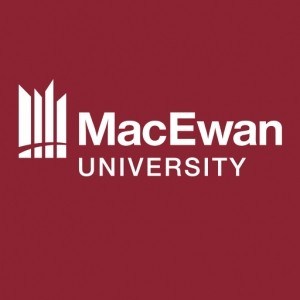The Bachelor of Science degree program is comprised of 120 credits of coursework with 6 majors: biological sciences, computer science, mathematics, mathematical sciences (in which students focus on two of mathematics, statistics or computer science), physical sciences (in which students focus on two of physics, chemistry or earth and atmospheric sciences) and psychology.You can prepare for a career in cutting edge fields like organic chemistry, computing science, cell biology, environmental science and many other specializations. Bachelor of Science students develop research skills, analytical skills, technical skills and work ethics that make them valuable commodities in the labour market. The Bachelor of Science degree at MacEwan University can also be a direct route to a professional program, with its pre-professional streams leading towards degrees in dental hygiene, dentistry, medical laboratory science, medicine, optometry, pharmacy and veterinary medicine.
Field of study: Physical Sciences
The Science program at MacEwan University offers students a comprehensive and foundational understanding of the natural sciences, designed to prepare them for various paths in further education or careers in scientific fields. This program emphasizes critical thinking, experimentation, and analytical skills, enabling students to explore the fundamental principles that govern the physical world. Throughout the coursework, students will engage with topics such as biology, chemistry, physics, and environmental science, gaining hands-on experience in laboratory settings and developing a solid scientific literacy.
The program includes a diverse set of courses that foster both theoretical knowledge and practical skills. Students will learn how to design experiments, analyze data, and communicate scientific findings effectively. The curriculum is structured to provide a flexible academic pathway, allowing students to focus on specific areas of interest or prepare for transfer to other universities for advanced degrees. For example, students interested in health sciences, environmental studies, or technological fields will find the program an excellent foundation for their future studies.
In addition to core courses, students have opportunities to participate in research projects and collaborations, which enhance learning and provide real-world experience. The program also promotes an understanding of the ethical and social implications of scientific developments and encourages students to apply scientific principles to solve complex problems in society. The faculty are dedicated to mentoring students and fostering an inclusive academic environment that supports diverse learning styles and backgrounds.
Graduates of the MacEwan University Science program are well-equipped with the academic skills and knowledge necessary to pursue further education or enter the workforce in science-related fields. Whether aiming to continue studies in health sciences, pursue careers in environmental management, or explore research opportunities, students will benefit from a rigorous and supportive educational experience. The program’s design ensures that students leave with a strong foundation in scientific inquiry, critical thinking, and problem-solving, essential attributes in today’s rapidly evolving scientific landscape.
Program Requirements:
Admission to the Bachelor of Science in General Science program at MacEwan University requires applicants to meet specific academic criteria. Prospective students must have completed their high school education with a minimum overall average as specified by the university's entrance standards, typically including strong performance in mathematics and sciences such as physics and chemistry. Applicants are also required to submit official transcripts, proof of English language proficiency if applicable, and any supporting documents as outlined by the admissions office.
Once admitted, students are expected to complete the required courses to earn the degree. The curriculum includes foundational courses in biology, chemistry, physics, and mathematics, covering essential principles and theories in each discipline. Students must also complete a set of elective courses that deepen their knowledge and skills in specific areas of science. Laboratory work is a significant component of the program to develop practical skills alongside theoretical understanding.
To graduate, students are generally required to accumulate a minimum number of credits, which typically includes 120 credits over the duration of the program. The program emphasizes critical thinking, analytical skills, and scientific communication, so students are encouraged to participate in research projects and internships where available. Additionally, students must maintain satisfactory academic standing, usually defined as a minimum GPA of 2.0 or higher.
Students are also expected to complete a capstone project or research paper in their final year, demonstrating their comprehensive understanding of scientific principles and their ability to apply them to real-world problems. For transfer students or those with previous post-secondary education, credits may be evaluated on a case-by-case basis to determine transferability.
Certain courses may have prerequisites or require instructor approval, particularly advanced topics. Throughout their studies, students are advised to consult academic advisors regularly to ensure they are meeting all program requirements and to plan their course schedule effectively. The program may also offer opportunities for study abroad or interdisciplinary work, further enhancing students’ educational experience.
In summary, the program requires the completion of core science courses, electives, a capstone project, and the maintenance of academic standards to ensure students graduate with a comprehensive foundation in science, prepared for careers in research, industry, or further education.
Want to improve your English level for admission?
Prepare for the program requirements with English Online by the British Council.
- ✔️ Flexible study schedule
- ✔️ Experienced teachers
- ✔️ Certificate upon completion
📘 Recommended for students with an IELTS level of 6.0 or below.
Financing for the Bachelor of Science program at MacEwan University is primarily composed of a combination of government grants, student loans, scholarships, bursaries, and personal funds. The university offers a range of financial aid options to support students throughout their studies. Canadian citizens and permanent residents are eligible to apply for government student loans and grants such as the Canada Student Loans Program (CSLP) and Alberta Postsecondary Student Loan Program, which help cover tuition fees, books, and living expenses. To access these funds, students must complete the Free Application for Federal Student Aid (FAFSA) and Alberta’s Student Financial Assistance (SAF) application, respectively.
In addition to government assistance, MacEwan University provides numerous institutional scholarships and bursaries aimed at both incoming and current students. These awards are based on academic achievement, financial need, leadership, and other criteria. Many of these scholarships are renewable each year, provided students maintain specific academic standards. Students are encouraged to complete the MacEwan University Scholarship and Bursary application form and to consider external funding sources such as private scholarships, community grants, and sponsorships offered by organizations and corporations.
Part-time employment options are also available, with students encouraged to consider on-campus positions, co-op programs, or internships related to their field of study to gain experience and supplementary income. MacEwan University’s Career Development office provides resources and advice for students seeking employment opportunities and assistance with applying for work-study programs.
International students typically pay higher tuition fees, but they might have access to private scholarships, outside funding sources, or sponsorships from their home countries. Some students may also explore educational loans or financial arrangements offered by third-party organizations.
Overall, the cost of the Bachelor of Science program varies depending on residency status, course load, and additional expenses such as materials and living costs. MacEwan University aims to make education accessible through its comprehensive financial aid offerings, assistance programs, and support services, although students are advised to thoroughly research and plan their financing strategies well in advance of starting their studies.
The Bachelor of Science degree at MacEwan University offers students a comprehensive education in the sciences, preparing them for careers in various scientific fields or further graduate study. The program provides a strong foundation in core scientific disciplines such as biology, chemistry, physics, and mathematics. Students have the opportunity to explore specialization areas through elective courses and capstone projects, which foster critical thinking, research skills, and practical application of scientific principles. The curriculum integrates both theoretical knowledge and laboratory experience, emphasizing hands-on learning to develop competencies essential for scientific careers or academic pursuits. MacEwan’s modern facilities and well-equipped laboratories support experiential learning and experimentation, ensuring students gain real-world skills. The program also emphasizes the development of communication skills, teamwork, and ethical considerations within scientific contexts. Students may have access to research opportunities, internships, and partnerships with industry or research institutions, enriching their educational experience and enhancing employability. Graduates of the Bachelor of Science program are well-prepared to enter various sectors, including healthcare, environmental science, research, education, and technology. The university's dedicated faculty members bring a wealth of expertise, contributing to a vibrant academic community that encourages inquiry and innovation. The program typically requires completion of a set number of credits over four years, with opportunities for specialization and interdisciplinary study. Graduates receive a recognized bachelor’s degree, positioning them strongly for advanced education or employment in scientific fields. Overall, MacEwan University’s Bachelor of Science program offers a balanced approach to scientific education, combining rigorous coursework, practical skill development, and research opportunities to prepare students for diverse scientific careers and lifelong learning.


